Articles by Poonam Khetrapal Singh
Digital health tech is key to achieving health SDGs
The time to act is now. It is in our collective interest that digital health technologies are targeted to those countries and populations that are furthest behind.

Published on Mar 24, 2023 07:27 PM IST
Universal eye care is not just aspirational, it is an achievable goal
Globally, the economic cost of blindness and moderate to severe vision impairment, in 2020 was estimated to be $411 billion, the majority borne by low- and lower middle-income countries

Updated on Feb 20, 2023 06:51 PM IST
Poonam Khetrapal Singh
India’s G20 stint must push for health security
For health and humanity, India’s G20 presidency holds immense potential — potential that WHO will do all it can to support. As the theme of India’s G20 presidency observes, we are one family, with just one world and one future — Vasudhaiva Kutumbakam.
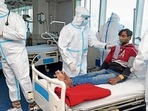
Updated on Jan 16, 2023 08:21 PM IST
Poonam Khetrapal Singh
Act together, act now to end gender violence
For a South-East Asia Region in which the health and well-being of all women and girls is adequately protected, promoted and supported, we must act together and act now.

Updated on Dec 09, 2022 10:52 PM IST
Poonam Khetrapal Singh
Devise right strategies to contain monkeypox
With the right strategies, this multi-country outbreak can be stopped — globally, and in the region. Towards that goal, the WHO will continue to support all countries of the region, ensuring a response that is coordinated, and which actively combats stigma and protects the vulnerable

Updated on Jul 31, 2022 08:18 PM IST
Poonam Khetrapal Singh
Yoga: A powerful tool to improve health
On the International Day of Yoga, WHO is privileged to celebrate the physical and mental health benefits of yoga and highlight its contributions to lifelong health and well-being, promoting healthier populations, and a healthier, more equitable and sustainable region and the world

Updated on Jun 20, 2022 08:37 PM IST
Poonam Khetrapal Singh
To develop equitably, address five priorities
The decisions we make now can either “lock in” development patterns that do permanent and escalating damage to the ecological systems, or they can promote a healthier, fairer, and greener world

Updated on Apr 06, 2022 07:50 PM IST
Poonam Khetrapal Singh
Build back better to achieve universal health care
Strong PHC services that are publicly financed help mitigate the social and economic determinants of health and reduce out-of-pocket costs

Updated on Dec 13, 2021 08:21 PM IST
Poonam Khetrapal Singh
WHO stands with a fairer, healthier, self-reliant, secure India for all
Increased investments in human resources for health will complement PMABHIM's focus and drive while at the same time promote additional social and economic benefits

Updated on Oct 27, 2021 12:53 PM IST
Poonam Khetrapal Singh
The digital revolution in Indian health care
The Ayushman Bharat Digital Mission aims to help achieve UHC in India by implementing the digital building blocks required for health care, and by making those blocks accessible as digital public goods for all

Updated on Oct 16, 2021 08:14 PM IST
Poonam Khetrapal Singh
Sustaining and scaling up the response to Covid is key to saving lives
Populations are exhausted. For almost 18 months, they have done everything they can to protect themselves and their loved ones. And, yet, we are still very much in the acute phase of this pandemic

Updated on May 31, 2021 05:22 PM IST
Poonam Khetrapal Singh
The equitable and efficient deployment of vaccines
Complacency must not set in. Although vaccine manufacturing has already started, reaching sufficient availability will take time. In a crisis such as this, there are no silver bullets

Updated on Dec 21, 2020 07:42 PM IST
Poonam Khetrapal Singh
A ‘new normal’ is in the offing. Ensure a balance| Analysis
Prioritise controlling the spread of Covid-19, strengthening health services, and supporting each other to stay healthy
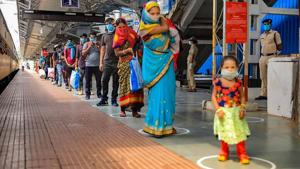
Published on May 12, 2020 06:25 PM IST
Poonam Khetrapal Singh
How India can eliminate measles, protect its children
A favourable policy environment to vaccinate children and older age groups will help the country fight the disease.
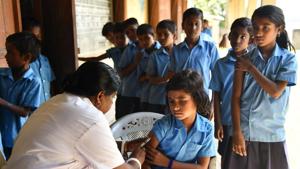
Published on Jul 28, 2019 06:03 PM IST
Poonam Khetrapal Singh
Ayushman Bharat reforms are timely and ambitious, but need effective implementation
The poor and vulnerable stand to benefit, and to do so significantly. Whether for a struggling farmer with an injury; a roadside fruit seller who has suffered a stroke; or a family whose child has life-threatening pneumonia, the PMJAY should increase the access and affordability of potentially life-saving hospital care. That is why PMJAY is a crucial part of the now well-known set of Ayushman Bharat reforms
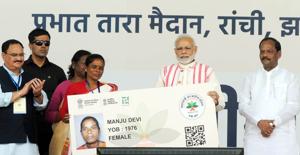
Updated on Oct 02, 2018 12:58 PM IST
Poonam Khetrapal Singh
Efforts to enhance access to safe water, sanitation in India paying off
Thanks to a range of long-term initiatives that have been intensified, water and sanitation are now the seventh-largest cause of disease, accounting for around 5% of the country’s disease burden.
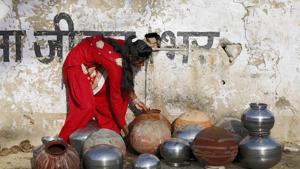
Updated on Mar 24, 2018 07:56 AM IST
Poonam Khetrapal Singh
Plain packaging will lessen the use of tobacco

Published on May 27, 2016 10:51 AM IST
Poonam Khetrapal Singh
Packaging laws for tobacco products can’t be restricted to rich nations
A law to ensure plain packaging of tobacco products will increase economic productivity and decrease medical costs.

Updated on May 26, 2016 09:08 PM IST
Poonam Khetrapal Singh
Ratification of WHO protocol a must to stop illicit tobacco trade
All member states need to speed up their process of ratifying or acceding to the protocol. Ratification of the protocol is necessary to respond to the financial, legal and health impacts of the illicit trade in tobacco products.
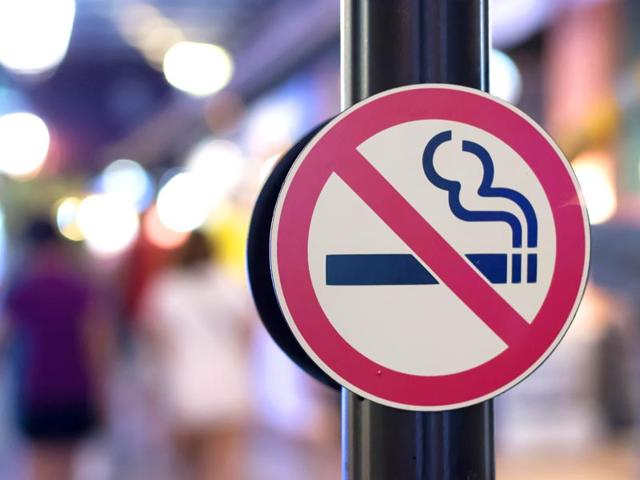
Updated on Jun 01, 2015 02:18 AM IST
Poonam Khetrapal Singh
Science alone cannot end HIV/AIDS
For an AIDS-free world, we need to blend the biomedical and social-behavioural interventions that ensure universal access to prevention and care of HIV in a health and social system that respects human rights, sexual diversity and gender equity.

Updated on Nov 28, 2013 12:46 AM IST
Poonam Khetrapal Singh






